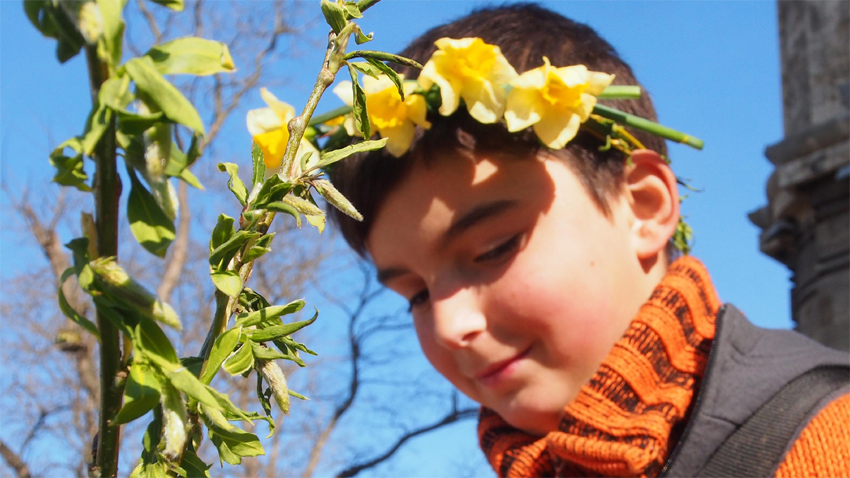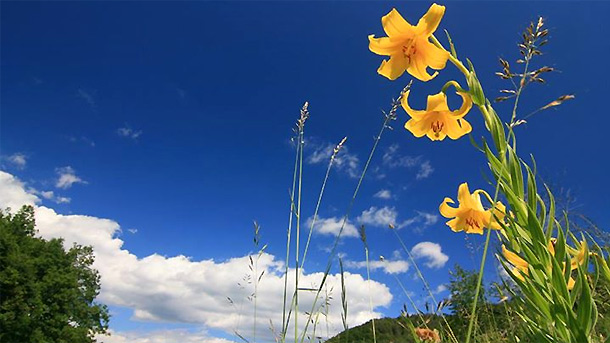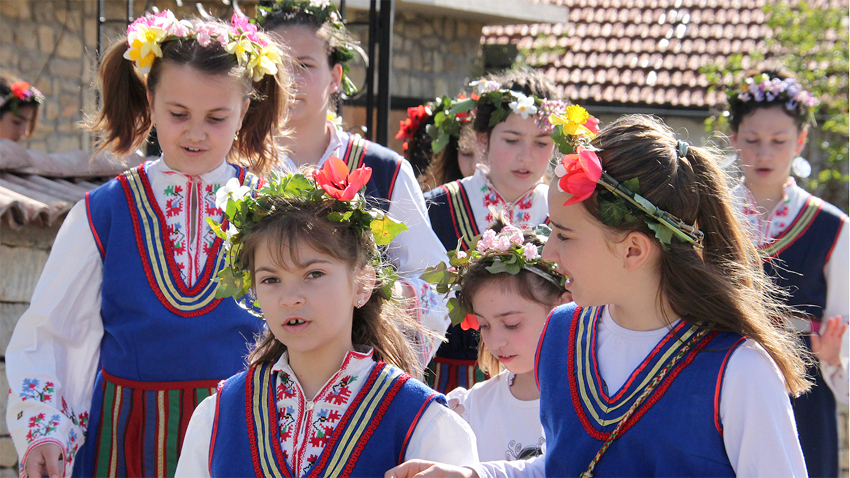

Once upon a time there lived a man and a woman, they had a little girl, a daughter, as pretty as a flower – there are many folk tales that begin with these words. In Bulgarian tradition, flowers are the symbol of beauty, but also of gentleness, freshness and fertility. On Tsvetnitsa women – young brides as well as unmarried lasses – would collect willow twigs and pick flowers, make wreathes and posies and use them to decorate icons and the utensils they used to fetch water with.

In Bulgarian tradition, it is mostly women who are named after flowers. But there are quite a few men names as well – the highly popular Yavor (sycamore) and Yassen (ash tree) which, in folklore, are said to have the capacity to protect. There are other names that were popular once, but which, though rarely, still exist in some parts of the country to this day - like Bosilko, Sedefcho (from the plant rue, which is thought to have magical properties), Trendafil, Rosen, Vurban etc.
But as flowers are said to do good, they can also do evil. That is why people must know their properties well. Red multiflora rose, avens, fraxinella ward off mischief by wood-nymphs, marigold protects against dragons… Grown in the girl’s garden or picked in the fields, they find a place in legends, songs and herbal use practice, lend colour to life, bring to mind serene thoughts. On Tsvetnitsa flowers must be plentiful, because this is the day that marks the end of the entire cycle of spring maiden games.
English version: Milena Daynova
Scientists from the Sorbonne will study the cultural heritage preserved in the Regional Ethnographic Open-Air Museum "Etar" , informs public broadcaster BNT. In March this year the French scientists together with experts of REOM "Etar" will study elements..
The day of St. Tryphon (1 February old style, 14 February new style) is celebrated by vine growers, falconers and gardeners in Bulgaria. Trifon Zarezan comes around with vine pruning and wine drinking St. Tryphon is believed to help..
All Bulgarian masquerade games originate from the ancient rituals related to the birth of the sun around Christmas. With the adoption of Christianity, in order not to defile the newborn God, the custom was blurred. In the western..

+359 2 9336 661
